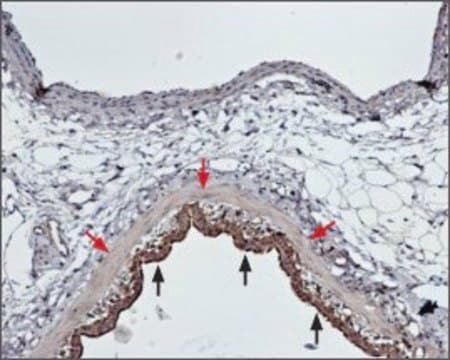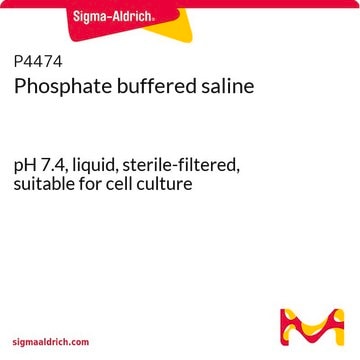E1407
Monoclonal Anti-Erythropoietin antibody produced in rat
clone 148438, purified immunoglobulin, lyophilized powder
Sinónimos:
Anti-EP, Anti-EPO, Anti-Epo
About This Item
Productos recomendados
biological source
rat
Quality Level
conjugate
unconjugated
antibody form
purified immunoglobulin
antibody product type
primary antibodies
clone
148438, monoclonal
form
lyophilized powder
species reactivity
mouse
technique(s)
neutralization: suitable
isotype
IgG2a
UniProt accession no.
storage temp.
−20°C
Gene Information
mouse ... Epo(13856)
General description
Monoclonal Anti-Erythropoietin antibody specifically reacts with mouse Erythropoietin.
Immunogen
Application
Physical form
Disclaimer
Not finding the right product?
Try our Herramienta de selección de productos.
related product
Storage Class
13 - Non Combustible Solids
wgk_germany
WGK 1
flash_point_f
Not applicable
flash_point_c
Not applicable
ppe
Eyeshields, Gloves, type N95 (US)
Certificados de análisis (COA)
Busque Certificados de análisis (COA) introduciendo el número de lote del producto. Los números de lote se encuentran en la etiqueta del producto después de las palabras «Lot» o «Batch»
¿Ya tiene este producto?
Encuentre la documentación para los productos que ha comprado recientemente en la Biblioteca de documentos.
Nuestro equipo de científicos tiene experiencia en todas las áreas de investigación: Ciencias de la vida, Ciencia de los materiales, Síntesis química, Cromatografía, Analítica y muchas otras.
Póngase en contacto con el Servicio técnico








